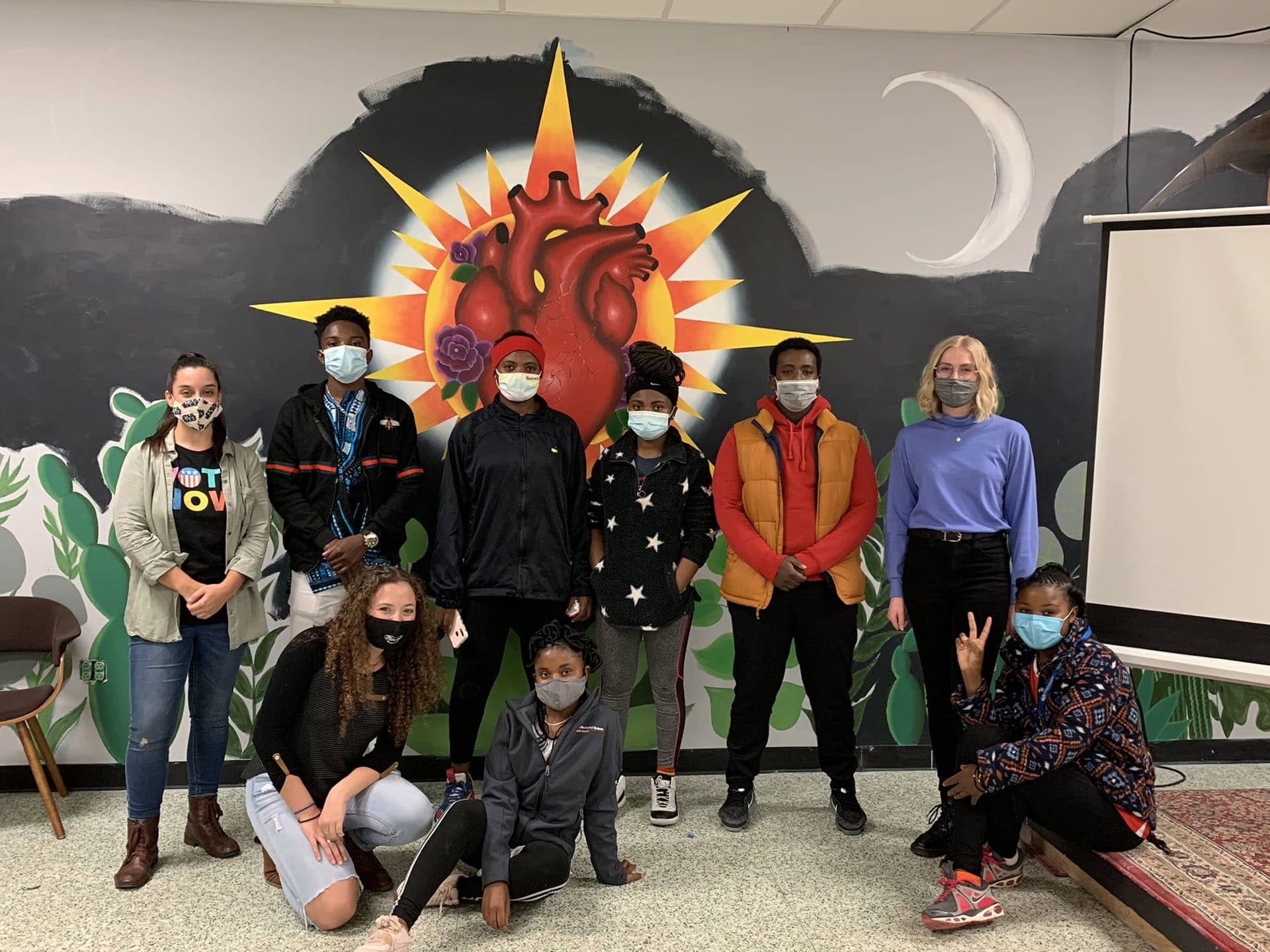
Canopy, a local refugee resettlement agency, is a good place to make changes locally. Here, high school and UA students gather for Canopy College Night. That’s Annette in the purple shirt at right.
Honors College Fellow Annette Quinn, a junior majoring in international and global studies, is participating in our Spring Signature Seminar, Global Social Change. Here, she unpacks the term Global Changemakers — a term not limited to heads of state and global corporations. Anyone can be a global change maker, including you.
To those unfamiliar with it, the term “Global Changemaker” may conjure up mental images of politicians, world leaders, and those changing the world at a macro level. While those people may be Global Changemakers, Global Changemakers is a much more nuanced phrase than it may first appear. Global Changemakers can be those setting global policy but they can also be people working in small nonprofits in rural towns in Arkansas or in local politics in impoverished areas of Barcelona. Anyone can become a Global Changemaker.
A good paradigm in which to think about the term “Global Changemaker” is the phrase “Think global, act local,” which is sometimes used to describe the concept of “glocalization,” or the idea that the global and the local shape each other. This phrase and concept embodies who a Global Changemaker is: someone who sees a problem that affects people throughout the world and addresses it in their own locality. Rather than try to tackle problems from a global standpoint, Global Changemakers realize that different locations are affected by these problems in different ways and therefore require different approaches. By addressing these problems in their own areas, they can provide more effective ways to help solve global issues, such as food insecurity or environmental degradation, that take the historical, social, cultural, and economic conditions of the locale into consideration.
While addressing problems locally, Global Changemakers can still interact with the global conversation on these issues and learn from what others are doing to fight these problems in the places where they live, while sharing what they have learned from their experiences in order to help others. Globalization and the spread of technology has made these interactions even easier in the 21st century. Global Changemakers not only have access to books, articles, and papers on the problems that they are attempting to solve, but are also able to directly talk to others working on the same issues through email, text, phone calls, and video chat. This helps Global Changemakers understand their place in the network of people working to solve global problems and find new solutions and ideas.
“Think global, act local” is affecting how I think about my place in creating local change on global problems. I have been working with a local refugee resettlement agency for about a year and a half, and during this time period, I have witnessed how refugee resettlement works in Northwest Arkansas and their problems. While I understand refugee resettlement in Northwest Arkansas, I could still stand to gain perspective on how refugee resettlement and the lives of refugees look in other places. For this reason, I am looking to intern with larger refugee resettlement agencies, as well as study abroad in Amman, Jordan, a city with many refugees, in order to understand what the lives of refugees look like in other countries and how other places handle resettlement. By seeing how different places interact with and provide for refugees in their communities, I can gain a better understanding on how to help refugees start new lives. As I am hoping to work with refugees for a career, this will help me inform myself and understand how my work fits into the global refugee crisis, hopefully leading me to be a Global Changemaker.
